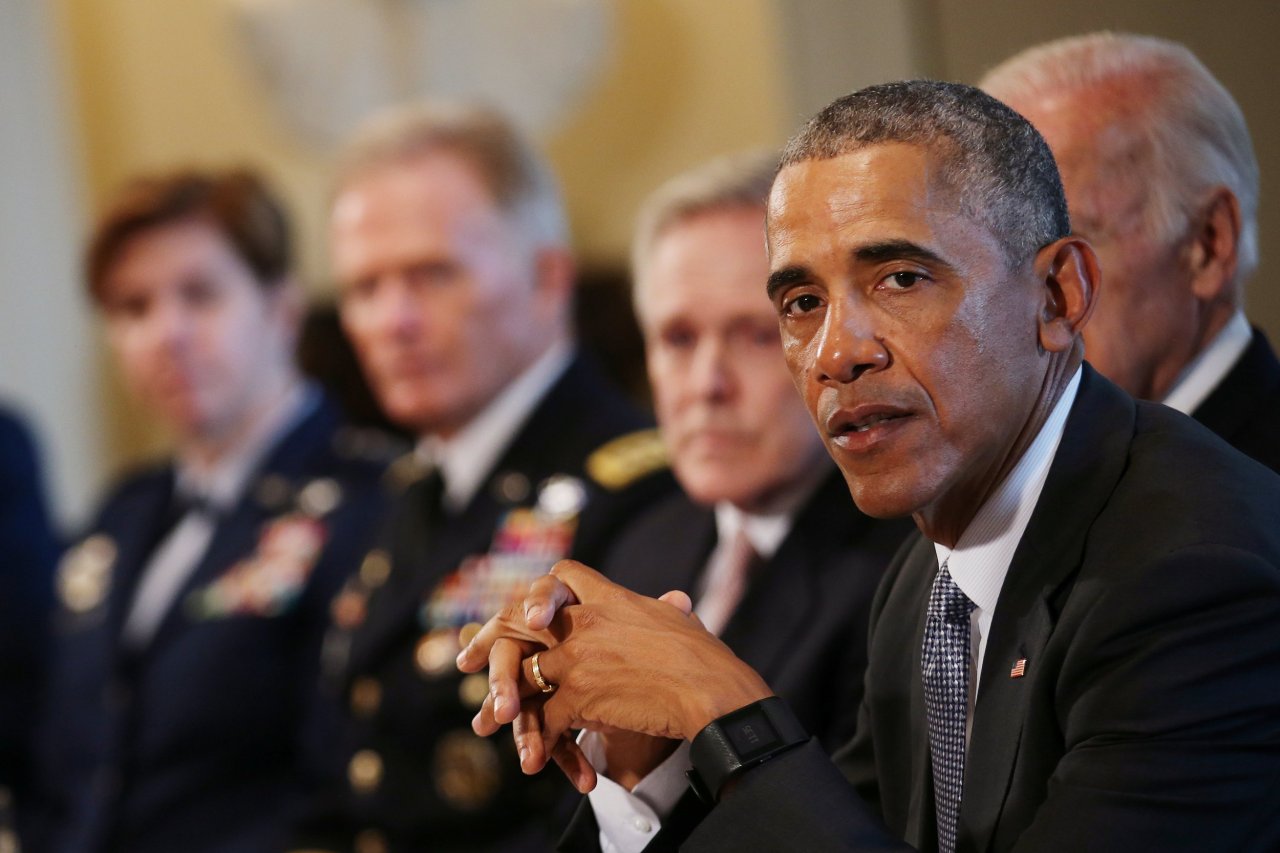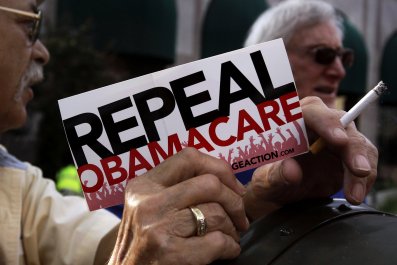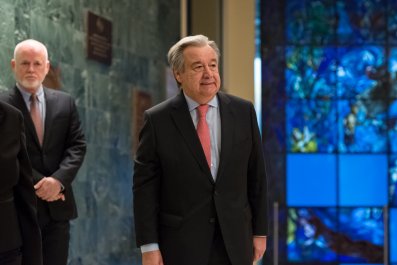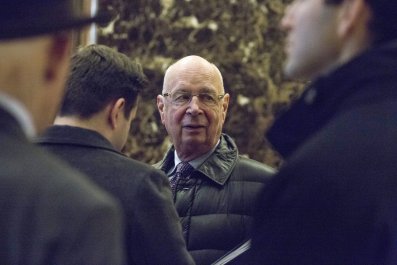Weird though it is, this presidential transition won't go down as the most bizarre. The nation basically dissolved in between Abraham Lincoln being elected in November 1860 and when he was inaugurated in March 1861: Seven states seceded from the Union before he was sworn in, and Honest Abe had to travel around Washington in disguise to avoid assassination attempts. Also, the Depression only worsened while Franklin D. Roosevelt waited to be sworn in—in March 1933—which is why the inaugural date was finally moved up to January. In 1980, the Iran hostage crisis consumed Jimmy Carter's last hours in office, and in 2000 much of the transition was spent fighting over the Florida recount, which continued into 2001.
It was only natural that the Donald Trump-Barack Obama transition would bear the mogul's unique imprimatur—jabs at The New York Times and Kim Jong-un; credulous belief in Julian Assange and dripping disdain for America's intelligence professionals; victory rallies long after the victory was over.
What's more surprising is that Obama's last weeks in office have been more like a series of disjointed gestures than a coda to his historic, pathbreaking presidency. Of course, there's still more than two weeks left, and Obama's "farewell address"—to be delivered in his hometown of Chicago on January 10—will probably be stirring. No one's ever questioned Obama's oratory. But it must be said that the past few weeks have a certain "meh" quality.
When it comes to the Middle East, Obama's last days have seemed more churlish than productive. The U.S. decision to abstain from voting on a U.N. resolution condemning Israeli settlements illustrated American anger at Benjamin Netanyahu's government, but it did nothing to advance the cause of peace. American administrations have long dissuaded the Israelis from building on the territories occupied since the 1967 Six-Day War. But the jab at Tel Aviv, even if it was in keeping with American foreign policy, only pushed the Netanyahu government into a more defensive crouch, and closer to the emerging build-all-you-want sentiment of the incoming Trump administration. With only days to go before Trump is sworn in, the gesture was bound to do little to bring the parties to the table. John Kerry's speech outlining the reasons for America's abstention even managed to alienate Britain, which supported the resolution but chided the secretary of state's barbs at Israel's "right-wing government." Unlike the end of Bill Clinton's term in 2000, when an agreement seemed plausible and the U.S., the Israelis and the Palestinians scrambled to make a deal, the U.N. debacle seemed less about peace and more about pique.
And what was with Obama's claim that he could have defeated Trump if he'd been allowed to run again? The president made this ostentatious statement during an interview with a former aide, David Axelrod. But of course Obama and the rest of us can't possibly know the answer to what would have happened if the two-term limit was magically lifted. Perhaps he could have beaten Trump—and perhaps not. Either way, it's a boast that diminished Obama more than it did Trump or Hillary Clinton.
The Obama administration's abrupt reversal on the Dakota Access Pipeline project was greeted with cheers by protesters who were trying to stop the project that they said threatened Native-American grounds; but the sudden reversal by the Army Corps of Engineers could have come earlier or later. As it happened, it was an odd thunderbolt.
Peppered amid these odd moments has been his last round of interviews: sit-downs with Bill Maher and Trevor Noah and Ta-Nehisi Coates and Anthony Bourdain. He's touched all the cultural bases, but can he capture the country's mood and make his own case in his address to the nation? The best farewell addresses have included surprises—Eisenhower's famed call to beware of the military-industrial complex and Washington's warning against foreign entanglements. Gerald Ford surprised many by using his last days in office to push for Puerto Rican statehood.
Obama isn't leaving Washington, and that may be part of the problem. He'll be the first president to remain in D.C. since Woodrow Wilson, infirm after a stroke, decamped the White House to a brownstone on S Street, where he continued drawing throngs of admirers after his presidency. Obama is setting up house a few blocks away, too, in the tony Kalorama neighborhood—also a few blocks from where Ivanka Trump is reportedly buying a home. Obama will be renting while his daughter finishes high school, which is to be applauded. But it also denies him and the country the catharsis of seeing the president leave town—a symbol that's become as much a part of the transition as any.






















